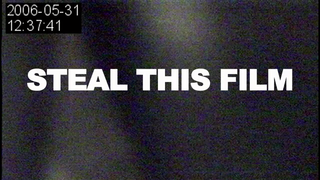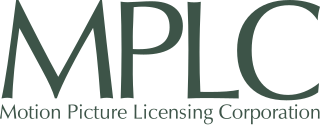Related Research Articles
Entertainment law, also referred to as media law, is legal services provided to the entertainment industry. These services in entertainment law overlap with intellectual property law. Intellectual property has many moving parts that include trademarks, copyright, and the "Right of Publicity". However, the practice of entertainment law often involves questions of employment law, contract law, torts, labor law, bankruptcy law, immigration, securities law, security interests, agency, right of privacy, defamation, advertising, criminal law, tax law, International law, and insurance law.

Free Culture: How Big Media Uses Technology and the Law to Lock Down Culture and Control Creativity is a 2004 book by law professor Lawrence Lessig that was released on the Internet under the Creative Commons Attribution/Non-commercial license on March 25, 2004.

"Home Taping Is Killing Music" was the slogan of a 1980s anti-copyright infringement propaganda campaign by the British Phonographic Industry (BPI), a British music industry trade group. With the rise in cassette recorder popularity, the BPI feared that the ability of private citizens to record music from the radio onto cassettes would cause a decline in record sales. The logo, consisting of a Jolly Roger formed from the silhouette of a compact cassette, also included the words "And It's Illegal". The campaign was officially launched by then-BPI chairman Chris Wright on 28 October 1981.
Intellectual property rights (IPRs) have been acknowledged and protected in China since the 1980s. China has acceded to the major international conventions on protection of rights to intellectual property. Domestically, protection of intellectual property law has also been established by government legislation, administrative regulations, and decrees in the areas of trademark, copyright, and patent. This has led to the creation of a comprehensive legal framework to protect both local and foreign intellectual property. Despite this, copyright violations are extremely common in the PRC. The American Chamber of Commerce in China surveyed over 500 of its members doing business in China regarding IPR for its 2016 China Business Climate Survey Report, and found that IPR enforcement is improving, but significant challenges still remain. The results show that the laws in place exceed their actual enforcement, with patent protection receiving the highest approval rate, while protection of trade secrets lags far behind. Many US companies have claimed that the Chinese government has stolen their intellectual property sometime in 2009–2019.

Don't Copy That Floppy was an anti-copyright infringement campaign run by the Software Publishers Association (SPA) beginning in 1992.
The Federation Against Copyright Theft (FACT) is an organisation established in 1983 to protect and represent the interests of its members' intellectual property (IP). FACT also investigates fraud and cybercrime, and provides global due diligence services to support citizenship investment and trade, business, financial and legal compliance.
"You can click, but you can't hide" is an advertising campaign run jointly by several international associations, most notably the MPAA and the GVU, as part of the larger "Respect Copyrights" campaign against peer-to-peer file sharing of motion pictures. The associations have long alleged that Internet file sharing, or maintaining a file sharing tracker, network or search engine, constitutes copyright infringement since the practice hurts their revenues.
Who Makes Movies? was an advertising campaign run jointly by several international associations looking to crack down on copyright infringement of motion pictures, most notably the MPAA, as part of the larger "Respect Copyrights" campaign. The campaign was endorsed by several motion picture workers' guilds, including the Directors Guild of America, the International Alliance of Theatrical Stage Employees, Moving Picture Technicians, Artists and Allied Crafts, the Motion Picture Editors Guild, the Screen Actors Guild and the Writers Guild of America.

Steal This Film is a film series documenting the movement against intellectual property directed by Jamie King, produced by The League of Noble Peers and released via the BitTorrent peer-to-peer protocol.

"Piracy is theft" was a slogan used by UK non-profit organization FAST. It was first used in the 1980s and has since then been used by other similar organisations such as MPAA. It has also been used as a statement, although that has been challenged as being inaccurate.

Motion Picture Licensing Corporation ("MPLC") is a global, independent, non-theatrical copyright licensing company authorized by more than 1,000 motion picture and television copyright holders, such as studios and producers, to issue a public performance license, called the “Umbrella License®,” which allows the public performance of copyrighted motion pictures, television programs and other audiovisual works that were originally intended for personal use only. The federal Copyright Act provides copyright owners the exclusive right to control the performance of their works. The Umbrella License allows organizations, corporations, associations, and other groups and institutions to show legally obtained motion pictures, television programs, and other audiovisual content that are originally intended for personal, private, home use only, in locations outside of the home. MPLC rights holders include Hollywood studios as well as children's, faith-based, independent, television, special interest, and international producers.
Founded in 1986, MPLC is a privately owned and operated company with offices in over 40 countries. MPLC's United States office is located in Los Angeles, California. MPLC’s parent company, Motion Picture Licensing Company (International) Limited is located in the United Kingdom.
The Prioritizing Resources and Organization for Intellectual Property Act of 2008 is a United States law that increases both civil and criminal penalties for trademark, patent and copyright infringement. The law also establishes a new executive branch office, the Office of the United States Intellectual Property Enforcement Representative (USIPER).
"You Wouldn't Steal a Car" is the first sentence of a public service announcement created in July 2004, which was part of the anti-copyright infringement campaign "Piracy. It's a crime." It was created by the Federation Against Copyright Theft and the Motion Picture Association of America in cooperation with the Intellectual Property Office of Singapore, and appeared in theaters internationally from 2004 until 2007, and on many commercial DVDs during the same period as a clip before the main menu or other previews appear, as either an unskippable or skippable video.

The Motion Picture Association (MPA) is an American trade association representing the five major film studios of the United States, as well as the video streaming service Netflix. Founded in 1922 as the Motion Picture Producers and Distributors of America (MPPDA) and known as the Motion Picture Association of America (MPAA) from 1945 until September 2019, its original goal was to ensure the viability of the American film industry. In addition, the MPA established guidelines for film content which resulted in the creation of the Motion Picture Production Code in 1930. This code, also known as the Hays Code, was replaced by a voluntary film rating system in 1968, which is managed by the Classification and Rating Administration (CARA).

Copyright infringement is the use of works protected by copyright without permission for a usage where such permission is required, thereby infringing certain exclusive rights granted to the copyright holder, such as the right to reproduce, distribute, display or perform the protected work, or to make derivative works. The copyright holder is typically the work's creator, or a publisher or other business to whom copyright has been assigned. Copyright holders routinely invoke legal and technological measures to prevent and penalize copyright infringement.
Counterfeit consumer goods are goods, often of inferior quality, made or sold under another's brand name without the brand owner's authorization. Sellers of such goods may infringe on either the trademark, patent or copyright of the brand owner by passing off its goods as made by the brand owner. Counterfeit products made up 5 to 7% of world trade in 2013, and in 2014 cost an estimated 2.5 million jobs worldwide, with up to 750,000 jobs lost in the U.S. About 5% of goods imported into the European Union in 2013 were fakes, according to the OECD.
File sharing in the United Kingdom relates to the distribution of digital media in that country. In 2010, there were over 18.3 million households connected to the Internet in the United Kingdom, with 63% of these having a broadband connection. There are also many public Internet access points such as public libraries and Internet cafes.
Music piracy is the copying and distributing of recordings of a piece of music for which the rights owners did not give consent. In the contemporary legal environment, it is a form of copyright infringement, which may be either a civil wrong or a crime depending on jurisdiction. The late 20th and early 21st centuries saw much controversy over the ethics of redistributing media content, how much production and distribution companies in the media were losing, and the very scope of what ought to be considered piracy – and cases involving the piracy of music were among the most frequently discussed in the debate.

The Stop Online Piracy Act (SOPA) was a controversial proposed United States congressional bill to expand the ability of U.S. law enforcement to combat online copyright infringement and online trafficking in counterfeit goods. Introduced on October 26, 2011, by Representative Lamar Smith (R-TX), provisions included the requesting of court orders to bar advertising networks and payment facilities from conducting business with infringing websites, and web search engines from linking to the websites, and court orders requiring Internet service providers to block access to the websites. The proposed law would have expanded existing criminal laws to include unauthorized streaming of copyrighted content, imposing a maximum penalty of five years in prison.
The Police Intellectual Property Crime Unit (PIPCU) is a unit of the City of London Police, the national lead force for fraud. It was established in 2013 with the responsibility to investigate and deter serious and organised intellectual property crime in the United Kingdom.
References
- ↑ "Getting inside a downloader's head". news.bbc.co.uk. BBC News Magazine. Retrieved 28 March 2022.
- ↑ "Education Is Best Weapon Against Web Piracy, not SOPA". forbes.com. Retrieved 28 March 2022.